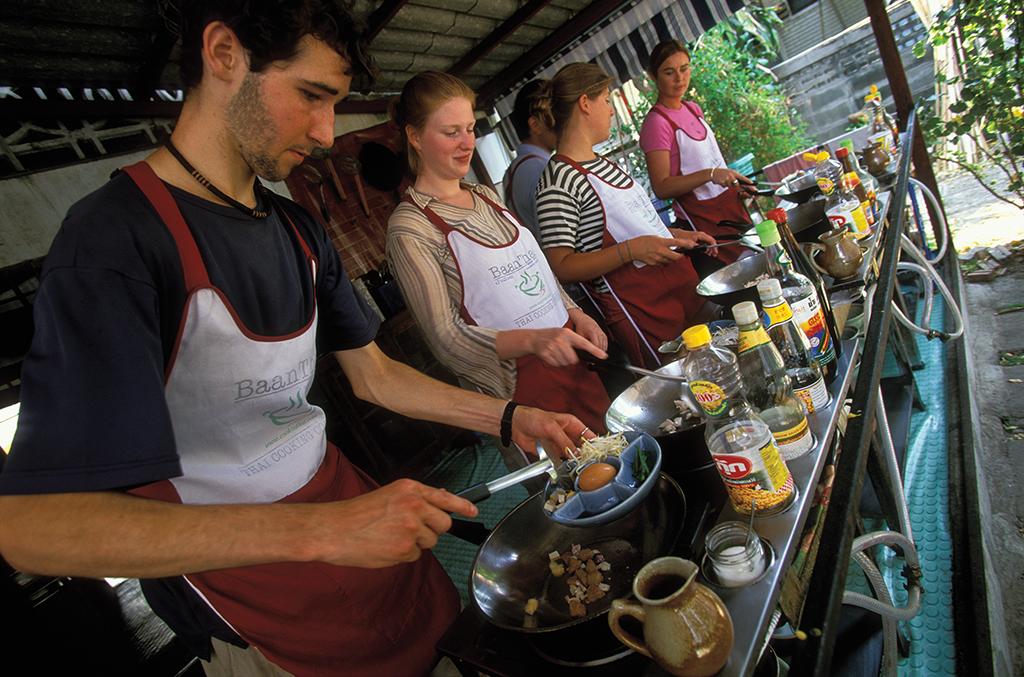MRO Retention: Add Cooking Classes?

The title of this piece was concocted on the spot by my colleague Christian Klein, ARSA’s executive vice president, as he and I ran a workshop on aviation maintenance career development during ARSA’s Annual Conference in March, before the coronavirus crisis hit the U.S.
As always, Christian provided an erudite “kicker” to set off the title: What do weekend cooking classes have to do with maintenance?
Answering this question requires rewinding to a few minutes before Christian typed the words into his laptop. We were deep into the second hour of discussion on workforce and recruitment challenges, reviewing various government resources and programs available to businesses looking to stimulate technical talent. Wisely, he changed tack and asked the group for examples of useful retention activities.
One response stood out, if only because it was so unexpected: Cooking classes. Not just for employees, but for spouses and family members, together at special off-hours events hosted by the company.
The idea hasn’t been implemented yet of course, due to the lockdown—you can stand ready for even more mouth-watering plays on words once it has been and we can report on it—but the underlying logic was quite interesting. Besides salaries, benefits and other “hard” payments to personnel, the company was considering what other “anchors” affect the decisions made by employees to change jobs.
The family experience, they determined, was key. Create a positive connection with the other people in your peoples’ lives and make the company a part of that relationship.
We all know the stories of losing people. A technician can take another job for a marginal increase in pay, a slight change in commute or schedule, or in response to some other professional interest. Many do, and we hear routinely from larger employers (and some smaller ones) about the pains of investing in training and skill development for new people, only to lose them to others. We hear also about the cycle of technical personnel leaving for richer rewards elsewhere, only to turn around and seek even more from the company that had first hired them. In the worst cases, the story ends with those “boomerangs” actually getting what they ask for . . . when they weren’t considered stellar performers the first time.
Surely, these discussions occurred during the workshop Christian and I were running, but let’s stay with family engagement and what it means.
The basic idea is to create additional connection with wives, husbands, girlfriends, best friends, children and even, perhaps, pets. Doing so gives you allies, additional voices in the personal lives of your people who will advocate for your business should other options arise. A cooking class is a fun example, one that is meant to add a social element to the experience of your employees, but there are a number of other hard and soft benefits that play directly into the home lives of those who spend their working hours with you—family leave, educational opportunities, health resources and other activities can make a useful connection.
I’ve said before that one of the great blind spots in our industry-wide efforts to find new talent is that we overlook the challenge of keeping the talent we have. The working world has changed, and many employees don’t intend or expect to spend full careers with the same company. Expecting to keep staff at all costs is foolhardy and probably against the larger interests of the maintenance community. Still, differentiating your company from other options is an important way to encourage people to stay and make your business more attractive than others.
This is where I ask for your input and feedback, so here it is: Help us learn more about how industry can inventively retain good people. Contact me at [email protected] and share what you’re cooking up.
Brett Levanto is vice president of operations at Obadal, Filler, MacLeod & Klein and an advisor to the Aeronautical Repair Station Association.




